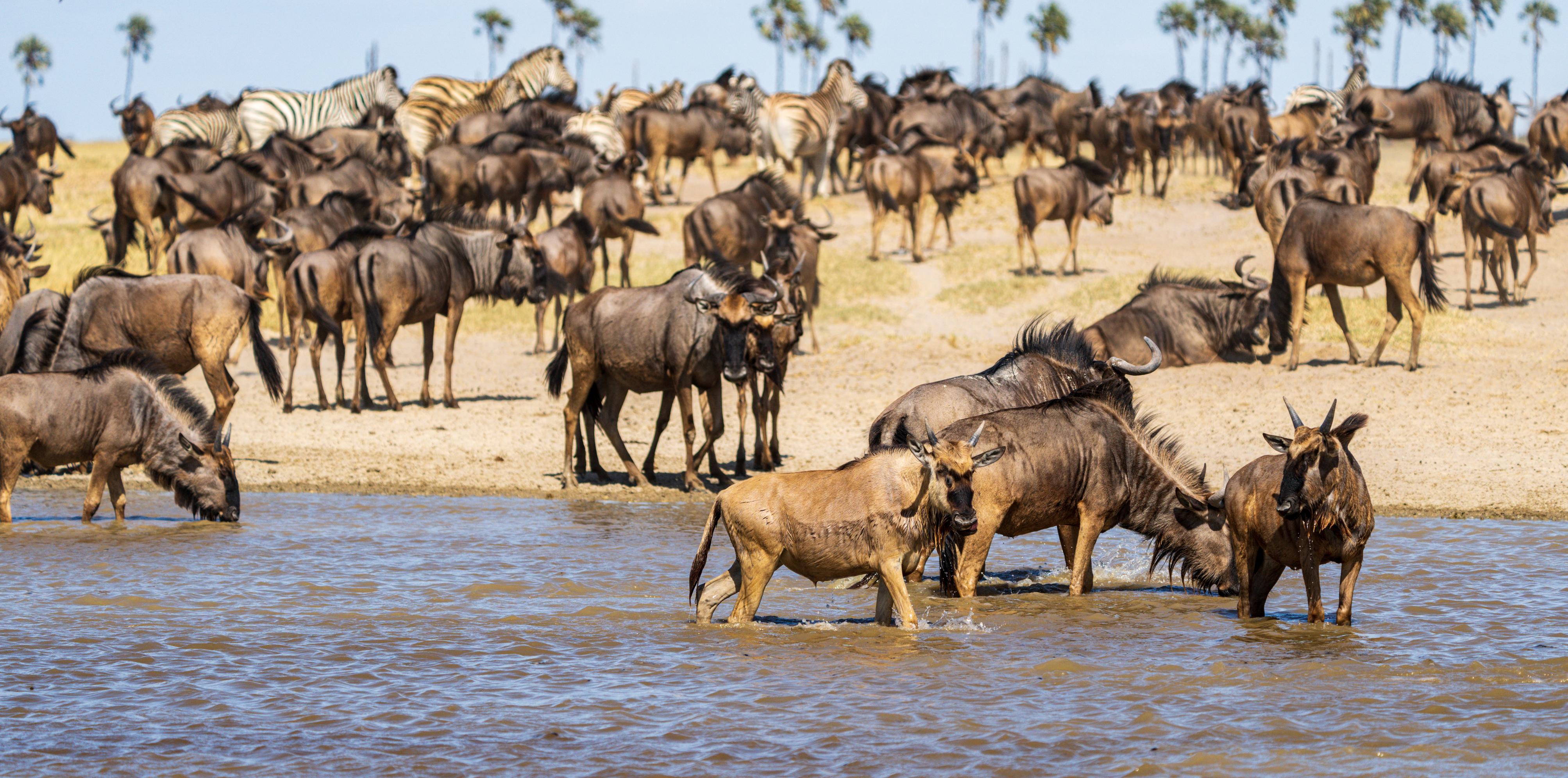
Creating policies and incentives that address biodiversity loss
To address the challenge of global biodiversity loss, governments must develop and improve local, national and international policy frameworks that conserve, restore and sustainably manage the ecosystems we all need to thrive.
Our role
Conservation International partners with governments to integrate science into national policies and global frameworks. We help strengthen domestic financial planning for biodiversity and advocate for ambitious global commitments to ensure sustainable funding for conservation efforts.
We played a key role in shaping the Kunming-Montreal Global Biodiversity Framework (GBF) and now support its implementation through national level policy processes including the update of National Biodiversity Strategies and Action Plans (NBSAPs). Conservation International’s NBSAP Support Initiative helped countries find solutions that are good for both climate and biodiversity and create economic incentives to protect nature, including reforming or repurposing subsidies that harm biodiversity.
Read more about the GBF here: Advancing Priorities Through the Global Biodiversity Framework | ES | FR. Read more about the NBSAP Support Initiative in our impact report.
Our priorities
Incentives for nature
Restructuring incentives and subsidies with unintended harmful impacts on nature is one of the most cost-effective strategies to halt biodiversity loss. The Accelerating Rapid Transition of Subsidies and Incentives (ARTSI) Initiative will support this transformation by developing the first dedicated global financing mechanism for subsidy reform while testing subsidy reform approaches in four countries to demonstrate feasible reform approaches.
Learn more: Incentives for nature-policy options for nature-positive economies | Achieving the Global Biodiversity Framework by Reducing Harmful and Scaling Up Positive Incentives for Nature
Advancing nature for climate
Biodiversity loss and climate change are two sides of the same coin — and share similar solutions. Conservation International advocates for protecting high-carbon ecosystems — such as old growth forests, mangroves and peatlands — and making sure these protections are part of national policies under the GBF.
Learn more: Advancing Priorities Through the Global Biodiversity Framework: Irrecoverable Carbon Ecosystems | ES | PR
Promoting nature-positive economies
Linking protection and production, and prioritizing conservation in places that people depend on for their livelihoods, ensures that conservation enhances human well-being.
Learn more: Achieving the Global Biodiversity Framework by Utilizing the Landscape Approach to Link Protection & Production | ES
Ensuring participation of Indigenous Peoples and local communities
Conservation International advocates for national biodiversity targets and processes that involve and strengthen the rights of Indigenous Peoples and local communities and recognize their land tenure.
Learn more: Achieving the Global Biodiversity Framework through Guaranteeing the Roles, Rights, and Contributions of Indigenous Peoples and Local Communities | ES | FR
Mobilizing finance for biodiversity
Conservation International’s Lui-Walton Fellow Carlos Correa hosted a webinar series to advocate for mobilizing greater financial resources toward key biodiversity goals. Watch here:
- YouTube: Nature and Climate: A Critical Moment for Global Action | ES
- YouTube: Transforming our Incentive Structures to Build a Nature Positive World | ES
- YouTube: Financing Biodiversity: Commitments Since COP15 and the Path Ahead | ES
- YouTube: Mobilizing Finance for Biodiversity | ES